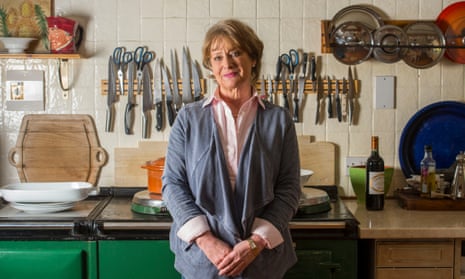Crime novelist Minette Walters is set to return with her first novel in 10 years, after a long hiatus caused by what she calls “complicated reasons” – including a desire to stop writing crime fiction.
Often credited as the “queen of the psychological thriller”, the British author says she will stop writing in the genre, with her next novel The Last Hours to be her first venture into historical fiction.
Walters became fascinated by the Black Death after learning that it entered England nine miles from where she lives in Dorset, at what is now Weymouth. She said that she felt haunted by the knowledge that victims of the plague were buried all round her. “Each time I leave my house, I know that somewhere beneath my feet is a plague pit,” she said.
The Last Hours, out in November, centres on a small Dorset estate in 1348, overseen by Lady Anne, a local landowner. As she and her workers face certain death, a freed serf is placed in charge as Lady Anne tries to protect her people from the encroaching epidemic. Over the hours they face a choice: starvation on the estate or leave, risking coming into contact with the illness sweeping through the countryside.
Inspiration also came as Walters became “troubled” that the plague victims buried beneath her had been “expunged from history as surely and brutally as any unknown murder victim”. “It troubles me that not one of the people buried in it has a name,” she added. The new book is the first of two, with the second due out next year.
Ten years in the writing, it could be a risky move for the writer to swap genres, after making her name with psychological thrillers such as The Sculptress, The Ice House and The Scold’s Bridle – but Walters dismissed such fears. “Analysing history isn’t so different from analysing a crime scene because human nature never changes,” she said. “Cain is still murdering Abel, the strong still dominate the weak and religion still offers answers.”
Speculation about what caused the 67-year-old to disappear from the literary scene has been rife in publishing. The author of 17 novels, novellas and short story collections, Walters has sold in excess of £11m worth of books in the UK alone. Burnout or writer’s block had been rumoured after an unbroken run of bestsellers from 1993 ended abruptly in 2007 with her last crime novel, The Chameleon’s Shadow. Since then she has enjoyed only one fictional outing: 2015’s short story The Cellar. In an interview that year, she told the Guardian that she had been feeling burnt out: “To be honest, I got to the point where I was beginning to be so stressed out and needed a break. I’m a very slow writer, and then I get stressed out with publicity and the whole business of getting a book out. And then it’s people’s expectations. I suddenly felt that I needed a life.”
Though the brand of domestic noir she pioneered is currently booming, through the likes of Paula Hawkins’s The Girl on a Train and SJ Watson’s Before I Go to Sleep, Walter admitted she had grown tired of the genre. “I love to innovate and, while it pleases me greatly that I’ve helped create the genre of psychological crime fiction, I’d be going against my nature if I didn’t look towards different horizons,” she said.
When asked what caused the hiatus, Walters said: “It’s complicated.” She added that she had “no better explanation” for the break than to hint that it involved initial resistance to her decision to no longer write thrillers. “Few publishers are brave enough to support and encourage an author who chooses a change of direction,” she added, pointedly thanking her Australian publisher Patrick Gallagher of Allen & Unwin for his “unstinting and unwavering belief in me”.

Comments (…)
Sign in or create your Guardian account to join the discussion